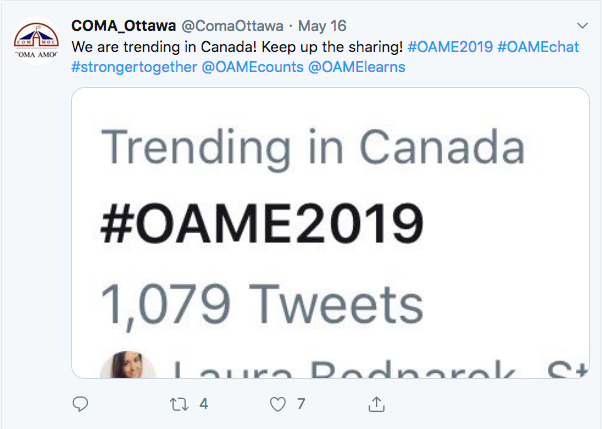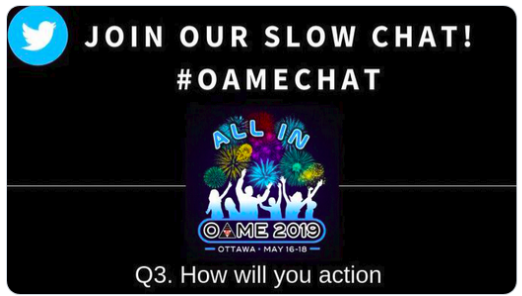|
All In
The Ontario Association for Mathematics Education held its annual conference in the nation’s capital this past week. Many thanks to the host chapter, @ComaOttawa, for the incredible planning and organization of this professional learning experience.

Many of us first time presenters, like myself, were comforted by friends, colleagues, and new acquaintances that offered words of wisdom to soothe frayed nerves, a lending hand to troubleshoot technical difficulties, and provide directions to water bottle refilling stations. Of particular note is the way fellow educators showed up to support first-time attendees and first-time presenters alike. This community of mathematics educators was all in.

Ilana Horn (@Ilana_Horn) spoke to members of the Ontario Mathematics Coordinators Association (@OMCAMath) about Designing Motivational Math Classrooms. She posed a question on belongingness, “What gets in the way of belonging in math class?”
The prominent student-centered message is mathematics educators are invited to create learning cultures in which students see themselves as doers of mathematics, to spark joy in their mathematical discoveries, to establish brave spaces where mathematical discourse and rough draft thinking/talking/writing is encouraged.
The emergent themes for educators in the sessions I attended at the OAME annual conference were identity, community, and vulnerability. Featured speakers, Sam Shah (@SamJShah2) and Matt Baker (@Stoodle) had a full lecture hall of educators roaring with laughter and then weeping into shirt sleeves as they shared their stories about the power of #TeacherVoice. Tracy Zager (@TracyZager) modeled a beautiful experience of community by sharing high-yield mathematical interactions and we were hooked as we worked independently and then collaboratively to discuss Magic Vs. Jamie Mitchell (@realJ_Mitchell) and Matt Coleman (@MrColemanArt) shared their journey of innovation and humbled us with their transparency and courage.
This tweet perfectly captures the spirit of #OAME2019 – a community of mathematics educators coming together to learn, share, and collaborate. Derek invited attendees of the mathematics conference to collaborate on a shared document in order to “learn about sessions that you missed…see what others took from the session…get some learning from a distance.” The Google Doc was 83 pages long at last check!

We will each have returned to our regularly scheduled life events by the time this article is published; however, the learning continues. Peruse the hashtags, take a look at the many presentations that have been shared by presenters, and keep sharing how you will action what you have learned at #OAMEChat.

@OAME2020 “In Focus” will be held at UOIT/Durham College in Oshawa, Ontario from May 7th – 8th, 2020. Stay tuned to oame.on.ca for details and practice your live-tweeting skills for #OAME2020.
Hema Khodai (@HKhodai)
|